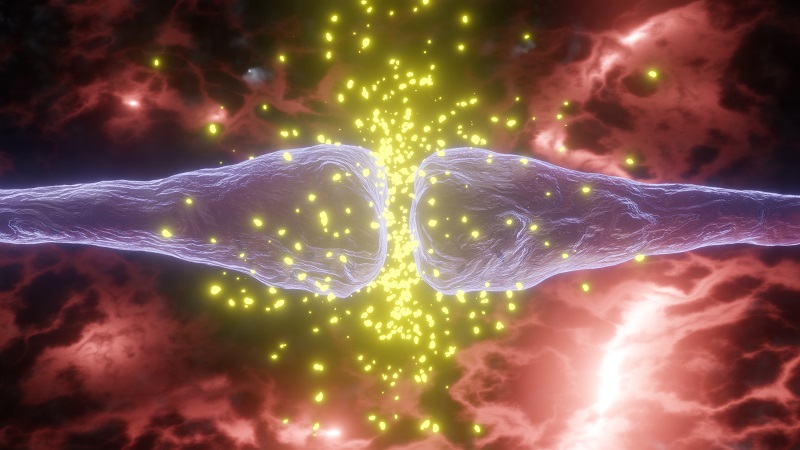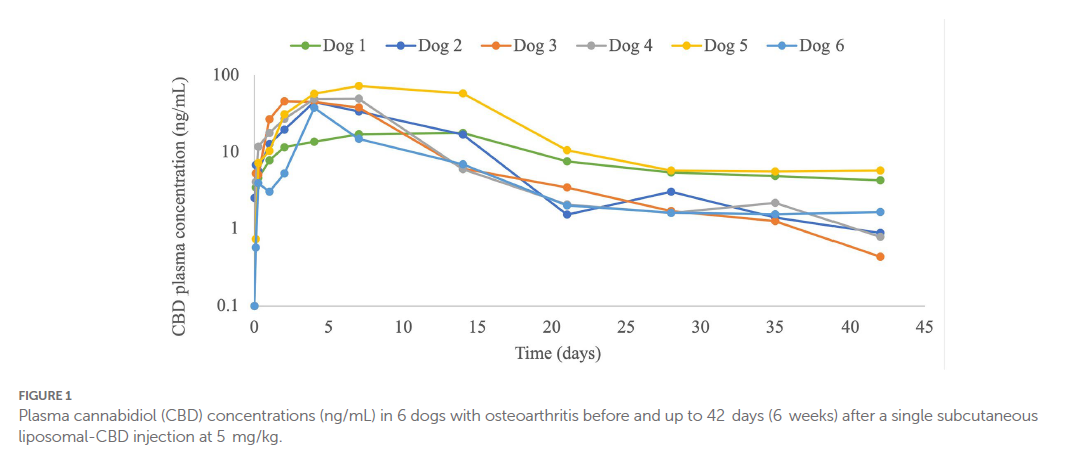What is Cannabinoid Signaling?

A healthy body completes all its functions and processes to achieve a stable state of equilibrium, also known as homeostasis. This is achieved by the aid of the endocannabinoid system or ECS. The endocannabinoid system is a crucial framework in the human body that works in a very intricate fashion.
Discovered as recently as the 1990s, the endocannabinoid system has become a point of discussion and heightened interest from biochemists, researchers, doctors, and other healthcare professionals. There are essentially three main areas that the endocannabinoid system works in. These include immune responses, skin homeostasis, and the central nervous system. Any disruption to even a single process involved in these results in severe medical diseases.
Disruptions in the endocannabinoid system
For example, a disruption in the endocannabinoid can hamper physiological processes associated with the central nervous system. This disruption can lead to neurodegenerative diseases such as Alzheimer’s, Parkinson’s, or other types of Dementia. Similarly, if the disrupted physiological process is associated with skin homeostasis, it could result in medical issues such as severe acne, psoriasis, allergic contact dermatitis, and so on.
In severe cases, this can also lead to the development of cancer. A study published by the University of Debrecen in the Molecules journal discusses the therapeutic potential of targeting the endocannabinoid system to treat a wide variety of medical conditions.
The key idea to discuss here is – what exactly is disrupted in the endocannabinoid system that results in the development of these medical problems? With continued research, it has been found that Cannabinoid Signaling is what plays an important role in the maintenance of the proper functioning of the endocannabinoid system.
It helps the human body in numerous domains, such as stress adaptation, prevention of neurodegenerative diseases and skin inflammatory diseases, strong immune responses, proper liver function, and more.
What is Cannabinoid Signaling, and how does its disruption affect the human body, especially in cases of poor skin homeostasis? Let’s have a closer look.
Endocannabinoid system and cannabinoid signaling
The endocannabinoid system is a biological system in our body that has three major components. These components include endocannabinoids, receptors, and enzymes. Endocannabinoids are cannabinoid-like lipid-based neurotransmitters that are produced endogenously in our bodies. These endocannabinoids bind to the two main receptors present in the endocannabinoid system; the two receptors are named CB1 and CB2 receptors.
When the endocannabinoid binds with these receptors, it produces signals that are sent to the target location. These signals enable the activation or inhibition of certain enzymes, catalysts, processes, and so on, and help in completing a certain physiological or biochemical reaction successfully. This entire process is referred to as endogenous cannabinoid signaling.
Enzymes come into action when the endogenous cannabinoid signaling has helped complete the target process successfully. The enzymes bind to the endocannabinoids and cause them to break down. The detachment of the endocannabinoids from the receptors triggers the halt of the process in question.
All of these events involved before, during, and after endogenous cannabinoid signaling are essential to ensure that everything occurs timely and correctly. Even the slightest disruption in endogenous cannabinoid signaling could result in the overproduction or decreased production of an enzyme, resulting in the development of a severe medical condition.
However, if there does occur a disruption in endogenous cannabinoid signaling, one needs medical intervention to fix the issue. Externally administered cannabinoids are used to replicate the signaling process. This form of triggering the endocannabinoid system to send signals to the target area is referred to as cannabinoid signaling. Since the cannabinoid used is not produced inside the body, the process is no longer endogenous.
Cannabinoid signaling possesses strong therapeutic effects. This is because it works at the root cause of the problem at a very micro level. A 2017 study published in the Canadian Journal of Physiology and Pharmacology discusses that cannabinoid signaling has potent medicinal purposes and can be used to treat a wide variety of diseases to maintain top-notch health. Using cannabinoid signaling, doctors can trigger the production of the exact enzyme that will help bring relief or treat the medical condition entirely.
Cannabinoid signaling for acne and skin dryness
Sebaceous glands play a key role in the determination of moisturization and hydration in the skin. Overstimulation of the sebaceous glands can result in increased production of sebum and oil in the skin. This sebum and oil clog the pores of the skin, thus resulting in severe acne. On the other hand, if the sebaceous glands do not produce enough sebum, the skin loses moisturization and hydration. This causes the skin to become incredibly dry and can result in conditions such as rosacea, psoriasis, eczema, epidermolysis bullosa, and more. Cannabinoid signaling can be used to set both these conditions right.
The School of Pharmacy, University of London, conducted a study and found that cannabinoid signaling could be used to inhibit the action of cyclooxygenase and lipoxygenase. Cyclooxygenase and lipoxygenase prevent the action of arachidonic acid-derived lipid mediators, which are required to inhibit acne inflammation. However, once cyclooxygenase and lipoxygenase are inhibited, they bring forth the proper functioning of the mediators.
Similarly, cannabinoid signaling can also help with skin dryness. A 2019 study published in La Clinica Terapeutica proves that cannabinoid signaling is effective in improving hydration levels of the skin. This effect enables the skin to regain its moisture and hydration and treat dry and inflamed rashes that develop during eczema or epidermolysis bullosa.
In both of these cases, cannabinoid signaling can be brought into action by using CBD topicals such as pain relief sprays, pain relief roll-ons, CBD body oils, facial serums, face oils, pain relief creams, and pain relief oils. One can also use other CBD-based products such as oromucosal, intranasal, tinctures, pills, capsules, and more.
Cannabinoid signaling for neural immune responses
The endocannabinoid system needs to continually function properly to maintain brain health. However, in the presence of inflammation of the neural cells, it can lead to several neurodegenerative diseases. Some of these include epilepsy, Alzheimer’s, Parkinson’s, Multiple Sclerosis, and more. Establishing proper cannabinoid signaling in such cases becomes extremely important to prevent neural cell death and possibly improve their health.
In several cases of Dementia, patients develop a plaque in the brain cells composed of Amyloid-beta. This protein plaque is developed due to the poor functioning of the endocannabinoid system and can further destroy and even kill the brain cells. A study published by Professor David Schubert in the Journal of Neurochemistry found that cannabinoid signaling helps remove this protein from the brain cells. The most potent form of CBD product in this aspect are CBD oils pills, capsules, intranasal, tinctures, CBD skin patches, and CBD injectables.
Another study published in the New England Journal of Medicine proved the efficiency of cannabinoids in dealing with Lennox–Gastaut Syndrome (LGS). This syndrome is a very specific form of epilepsy, which causes the patient to experience multiple seizures on one particular day. The study found that cannabinoid signaling helps significantly reduce the number of seizures. In fact, this particular benefit is so potent that the FDA approved a CBD-based drug for the treatment of this specific purpose. This drug is called Epidiolex, and it helps a patient experience fewer seizures over the months. It is most commonly used to treat two types of epilepsies – Lennox–Gastaut Syndrome (LGS) and Dravet Syndrome.
Cannabinoid signaling for liver therapeutics
A 2013 study published in the Journal of Hepatology found that the CB1 receptors of the endocannabinoid system are crucial in maintaining liver health. These CB1 receptors are involved in mediating any chronic or acute damage to the liver cells. This study suggests the use of cannabinoid signaling to deal with any liver-related issues.
The potency of this method is largely attributed to the anti-inflammatory properties exhibited by cannabinoids. However, this study was not able to establish any direct connection between cannabinoid signaling related to the CB2 receptors and better liver response. The most common CBD-based products used for liver therapeutics are pills, capsules, tinctures, CBD skin patches, and injectables.
Cannabinoid signaling for pigmentation disorders
The endocannabinoid is closely associated, via complex pathways, with the regulation of melanocytes. These melanocytes play an important role in determining skin pigmentation. In cases where not enough melanocytes are produced, the patient might suffer from hypopigmentation. On the other hand, increased and abnormal production of melanocytes results in hyperpigmentation. Similarly, irregular and abnormal melanocyte production in certain specific parts of the body leads to vitiligo.
The type of pigmentation disorder one develops largely depends on what went wrong in the endocannabinoid system. A 2017 study found that cannabinoid signaling activates p38 MAPK and p42/44 MAPK, which help regulate melanogenesis by stimulating the CB1 receptors in the endocannabinoid system.
Cannabinoid signaling for stress adaptation
When a person is stressed, the hypothalamus signals the adrenal gland to release the glucocorticoid hormones. The secretion of these hormones from the adrenal gland is further mediated by the pituitary gland. The glucocorticoid hormones help regulate stress and enable the person to go back to a state of equilibrium. However, continued stress results in increased production of the glucocorticoid hormones, which can have harmful effects on the cardiovascular, metabolic, and immune health of a person.
Now, a 2010 study established the fact that the endocannabinoid signaling, especially the one associated with CB1 receptors, plays an important role in the functioning of the pituitary gland. Thus, in the presence of a disrupted endocannabinoid signaling, it becomes incredibly crucial to establish cannabinoid signaling. This can be established by means of CBD products such as CBD body oils, pills, nasal sprays, CBD skin patches, injectables, capsules, oromucosal, intranasal, and more.
Cannabinoid signaling for pain relief
When it comes to pain and inflammation of the bones, joints, and muscles, arthritis is the most common problem seen in patients. The integral structure of the joints gets degraded, resulting in acute pain and high inflammation of the area. The endocannabinoid system works in this case by picking up the pain signals and causing a great deal of pain to the patient.
However, cannabinoid signaling can help patients suffering from arthritis get some relief from the inflammation. CBD products such as pain relief sprays, pain relief roll-ons, CBD body oils, facial serums, face oils, pain relief creams, and pain relief oils have powerful anti-inflammatory properties.
When these CBD products are administered to the patient, a cannabinoid signaling process is established that signals the target area to reduce inflammation and pain in the joints. A study published in the European Journal of Pain proved that the transdermal application of cannabinoid is highly beneficial in establishing cannabinoid signaling and reducing inflammation.
The cannabinoid in these products interacts with both the CB1 and CB2 receptors to bring about the desired effects. In severe cases of arthritis, doctors often recommend using CBD products that have been enhanced using permeation enhancers. Using these, the bioavailability of the cannabinoid increases. This enables the cannabinoid signaling to become more potent and long-lasting.
Cannabinoid signaling for tumor cells autophagy
Cells in our body become life-threatening and cancerous when the endocannabinoid system loses control of cell growth. Cannabinoid signaling is a very potent method in establishing cancerous cells autophagy. A 2015 study by the Journal of Investigative Dermatology proved that cannabinoid is highly effective in breaking down cancerous cells. In some cases, cannabinoids are also potent in enabling the death of the cancerous cells. This can further help with stopping the spread of cancer.
Another study conducted by Vanderbilt University found that cannabinoid signaling using CBD products can also suppress angiogenesis. Angiogenesis is the process that provides blood to tumor cells. However, cannabinoid signaling can help prevent the cells from getting blood supply, thus leading to the death of these cancerous cells.
Conclusion
Numerous physiological and biochemical processes are mediated by the endocannabinoid system in our bodies. Even though this system has only been recently discovered by researchers, it has already proven to be a valuable source of information on numerous medical conditions, especially the ones for which modern science has no cure. With continued research and development, it’ll be very interesting to find the hidden potential of cannabinoid signaling and how it can enable the healthcare industry to provide better medical care to patients.
More articles:




